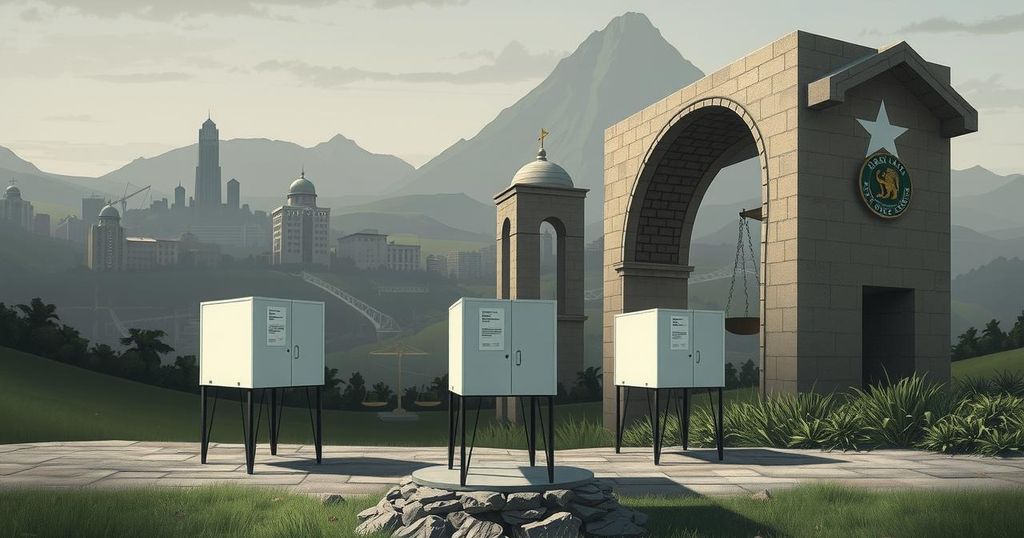Ghana’s Upcoming Election Amidst Severe Economic Crisis
Ghanaians are preparing for a critical general election on December 7, 2024, amid their worst economic crisis in decades. With 18.7 million registered voters, the election features Vice President Mahamudu Bawumia and former President John Mahama as the primary candidates. The people’s disillusionment with the economy poses a significant challenge for both parties, as they promise reforms to revitalize Ghana’s economic landscape.
Ghanaians are set to participate in a critical general election on December 7, 2024, amid the nation’s most severe economic crisis in decades. Approximately 18.7 million registered voters will decide between two presidential candidates: Vice President Mahamudu Bawumia of the New Patriotic Party (NPP) and former President John Mahama of the National Democratic Congress (NDC). Citizens hold growing disillusionment, with 82% expressing concerns that the country is on the wrong track following years of economic mismanagement.
Historically, Ghana has represented democratic stability in West Africa, known for peaceful electoral processes. However, faced with escalating inflation and job scarcity, many voters see limited prospects for significant change from either major party. The upcoming election appears to be a contest primarily between Bawumia and Mahama, who will also lead their respective parties in legislative elections for 276 parliamentary seats.
During their final rallies, both candidates emphasized their proposed solutions to Ghana’s economic difficulties. Bawumia, boasting an academic background as an economist, aims to continue stabilizing and improving policies introduced by the current administration. In contrast, Mahama has promised a comprehensive “reset” of the nation across crucial sectors, indicating the urgency for systemic change.
Despite celebratory election feelings marked by public festivities and political engagement, there remains a palpable anxiety surrounding the country’s economic situation. Ghana’s economy has been burdened with high prices for fuel and essential goods, contributed to by a default on foreign debts. Inflation peaked at 54% at the end of the previous year, impacting everyday life.
Additionally, illegal gold mining, or galamsey, poses a significant social and environmental challenge, complicating economic recovery efforts. As Ghana struggles with this issue, there is an urgent need for effective governance to mitigate the harms of both financial hardship and illegal mining operations that threaten ecological sustainability. The upcoming elections will not only define the political landscape but will also significantly impact Ghanaians’ pursuit of stability and recovery.
In conclusion, Ghana’s impending election takes place against a backdrop of economic turmoil, marking a pivotal moment for the nation and its democratic principles. With two principal candidates presenting similar platforms, voter concern surrounding economic stability remains high. This election will be instrumental in shaping governance and addressing pressing issues such as inflation and illegal mining, determining the future trajectory of Ghana amidst its struggles.
Original Source: apnews.com




Post Comment